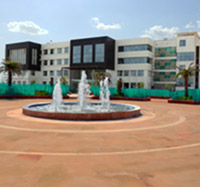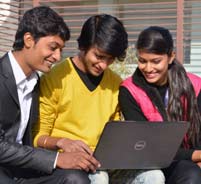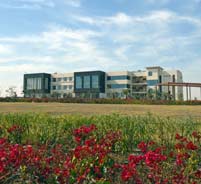Latest News:
- ABOUT RNBGU
- ADMISSIONS
- Schools
- ACADEMICS
- Strategic Plan and Deployment Documents
- Faculties and Schools
- Curriculum Design and Policy
- Syllabus
- Programme Outcomes
- Course Outcomes
- Examination and Evaluation
- Academic Calendar 2024-2025
- Board of Studies
- Academic Council
- Faculty Members
- Policies
- Committees
- ICT-Enabled Facilities
- Sanctioned Teaching Post
- MOOC Courses
- Doctoral Faculty Detail
- Indian Knowledge System (IKS)
- Gender Cell
- Teaching Learning Pedagogy
- NEP 2020 Implementation
- Teaching Outcome (Attainment)
- PROGRAMS
- Under Graduate Programs
- B.A. (Bachelor of Arts)
- B.Com. - 2025-26
- B.Com . (Hons) - 2025-26
- BBA (Marketing) - 2025-26
- BBA (Finance) - 2025-26
- BBA (Digital & Social Media Marketing) - 2025-26
- BBA (Human Resource Management) - 2025-26
- BBA (Foreign Trade) - 2025-26
- BBA (Bachelor of Business Administration) - 2025-26
- B.Tech. (Computer Science And Engineering)
- B.Tech. (CSE) Spl In Cyber Security & Forensics
- B.Tech. (CSE) Spl In Data Science & Analytics
- B.Tech. (CSE) Spl In AI & Machine Learning
- B.Sc. (Bachelor Of Science) - 2025-26
- B.Sc. (Biotechnology) - 2025-26
- B.Sc. (Hons) Agriculture
- BBA + LL.B. 2025-26
- B.A. + LL.B. 2025-26
- BCA (Bachelor of Computer Application)
- BCA-MCA Dual Degree - 2025-26
- LL.B. 2025-26
- Post Graduate Programs
- M.A. (English) - 2025-26
- M.A. (Economics) - 2025-26
- M.A. (Political Science) - 2025-26
- M.A. (History) - 2025-26
- M.A. (Public Administration) - 2025-26
- MBA - 2025-26
- MBA (Marketing) - 2025-26
- MBA (Finance) - 2025-26
- MBA (Digital Marketing & E-Business) - 2025-26
- MBA (Family Business & Entrepreneurship) - 2025-26
- M.Sc. (Biotechnology) - 2025-26
- M.Sc (Agronomy) - 2025-26
- M.Sc (Genetics & Plant Breeding) - 2025-26
- LL.M 2025-26
- MCA (Master of Computer Applications) - 2025-26
- Doctoral Programs
- Under Graduate Programs
- INFRASTRUCTURE
- Research & Incubation
- Library
- ERP Login
- NIRF
- Placements
- Campus Life
- Media
- Blog
- Career
- Contact Us
- Student Reviews
- NAAC
- Anti-Ragging
News

National Seminar “Constitutional Values in the Contemporary Indian Politics”
Sep 13, 2021
Introduction
The National Seminar is organized by the SOL, RNBGU on the topic “Constitutional Values in the Contemporary Indian Politics”. A Constitution may be written or unwritten, but it contains fundamental laws of the land. It is the supreme and ultimate authority. Any decision or action which is not in accordance with it will be unconstitutional and unlawful. A Constitution also lays down limits on the power of the government to avoid abuse of authority. Moreover, it is not a static but a living document, because it needs to be amended as and when required to keep it updated. Its flexibility enables it to change according to changing aspirations of the people, the needs of the time and the changes taking place in society. The Constitution of any country serves several purposes. It lays down certain ideals that form the basis of the kind of country that we as citizens aspire to live in. A country is usually made up of different communities of people who share certain beliefs, but may not necessarily agree on all issues. A Constitution helps serve as a set of principles, rules and procedures on which there is a consensus. These form the basis according to which the people want the country to be governed and the society to move on. This includes not only an agreement on the type of government but also on certain ideals that the country should uphold. The Indian Constitution has certain core constitutional values that constitute its spirit and are expressed in various articles and provisions. But do you know what is the meaning of the word, ‘value’? You may immediately say that truth, non-violence, peace, cooperation, honesty, respect and kindness are values, and you may continue to count many such values. In fact, in a layman’s understanding, value is that which is very essential or ‘worth having and observing’ for the existence of human society as an entity. The Indian Constitution contains all such values, the values that are the universal, human and democratic of the modern age.
WORKING SESSION 1 –“ Constitution and Judiciary”
Speaker 1 – Mrs. S.P. Vidyassri
Assistant Professor, Saveetha School of Law, SIMATS Topic - Empirical study on frequent promulgation of ordinance is a threat to parliament democracy
Mrs. S.P. Vidyassri said that Re-proclamation of ordinance is a misrepresentation on the Constitution and, the Supreme Court has put aside a lot of ordinances passed by the Bihar government somewhere in the year of 1989 and 1992. Re- promulgation of ordinance is a force on the Constitution and a disruption of majority rule administrative procedures, Repromulgation proposes that notwithstanding with the session of the governing authorities, a new exercise is to proclaim the ordinance is being turned to exercise of the way that the legislative assembly which was in ownership of a recently declared ordinance has not changed over its arrangements into a consistently sanctioned ordinance.
Speaker 2- Mr. Aashish Taank
JRF, Department of Law, Panjab University Topic - Rule of Law – Developments and Perspective in Indian Context
Aashish Taank stated that the Concept of Rule of law has attained different meanings in different Legal Systems due to variance in uniquely situated historical, social, traditional, economic, political and demographical factors of each nation. For India, rule of law has been an established pre-requisite for sustenance of a just, humane, tolerant, equitable society. Even our freedom struggle was predominantly at core a resurgence of Indians for attaining for themselves a self-rule opposed to arbitrary and oppressive colonial administration.
Speaker 3 - Dr. Vinay Prahaladbhai Solanki
Assistant Professor, Nanavati Law college, Ahmedabad Topic - Constitution and Constitutionalism
Dr Vinay Prahaladbhai Solanki explained that It is one of the celebrated maxims of political science that there can be no society without a state, and there can be no state without a constitution. The word ?constitution‘ is used mainly in many senses—constitution of a body, constitution of trade union, constitution of political party etc. In a political sense, it signifies the constitution of the state. Now the term has attained a normative connotation and has become another term for a ?democratic political order.‘ Every state must have constitution of its own and that its government must be organised and conducted according to the rules of the constitution so that the people must have a rule of law, it constitutes the case of constitutionalism.
Speaker 4 – Dr. Gurmeet Kaur Assistant
Professor, SOL, IGNOU Topic - Socialism, its Constitutional Value, and Interpretationby Judiciary
Socialism though cannot be defined precisely but as a system seems to emphasis on the welfare and achieving the goal of equality among the people with basic aim is to remove class exploitation and disparities. It premises on the concept of cooperation to ensure economic and political equality where means of production, wealth, profits are equally distributed, exchanged are owned and regulated by the welfare state for overall development of society negating the concept of individual or competition. The present research paper focuses on the concept of socialism, its constitutional value, its ideology and impact in the context of India. The concept of socialism is also discussed in the light of interpretation by the judiciary.
Address by Chairman Dr. B.K. Yadav
Dr. B.K. Yadav expressed his gratitude towards all speakers. Rapporteur of the Session – Mr. Ashok Prem and Ms. Swati Agrawal
WORKING SESSION 2 – “Constitution and Rights of Weaker Section”
Speaker 1 – Dr. Jay Kumar Bhongale
Assistant Professor, New Law College, BVDU, Pune Topic - “Reality of Justice for Atrocities on Schedule Caste and Schedule Tribes under Indian Constitution”
First speaker for the session was Jay Bhongale, delivered his speech on ?Reality of Justice for Atrocities on Schedule Caste and Schedule Tribes under Indian Constitution? dealing with two judgements of Supreme Court defying the goals of justice and spoke about the laws relating to Scheduled castes and constitutional mandate.
Speaker 2 - Mr. Pankaj Dabgotra
M.Phil Scholar, Department of Public Administration, Panjab University, Chandigarh Topic - “Reservation and other Backward Classes in Jammu and Kashmir: An Analysis”
Mr. Pankaj Dabgotra was second speaker for the session and delivered his speech on ?Reservation and other Backward Classes in Jammu and Kashmir: An Analysis? spoke on the constitutional scheme of reservation and emphasizing on reservation in Jammu and Kashmir and related policies with its historical development in the particular state.
Speaker 3 – Ms. Nivedita Ghosh
Research Scholar, Maharashtra National Law University Topic - Constitutional Right to health
Third speaker, Nivedita Gosh, spoke on Constitutional Right to health, dealing the development and concept of right to health in India and at international level. The author emphasized on the rights as fundamental right ensured through judicial activism particularly focusing on state obligation of progressive realization of right to health.
Speaker 4 – Dr. Mukta Verma
Assistant Professor, SOL, Allahabad University Topic- Role of Indian constitution in contemporary politics: issues and challenges
Fourth speaker of the session was Dr Mukta Verma, spoke on ?role of Indian constitution in contemporary politics: issues and challenges? dealing with various issues prevalent in India like electoral reforms, constitutional rights and so on. After the speakers the Dr. Tufail Ahmed Khan HOD , Presidency University, Bangalore, delivered his views on the papers presented and also provided significant inputs on the constitutional values. After the speech there was discussion on the topic by Dr. Gurbax Singh Karkara and Dr.Tufail Ahmed on the constitutional values and progressively implementing in democratic setup like India. Then Vote of Thanks was offered by Ms. Sofia Kausar Assistant Professor of Law









